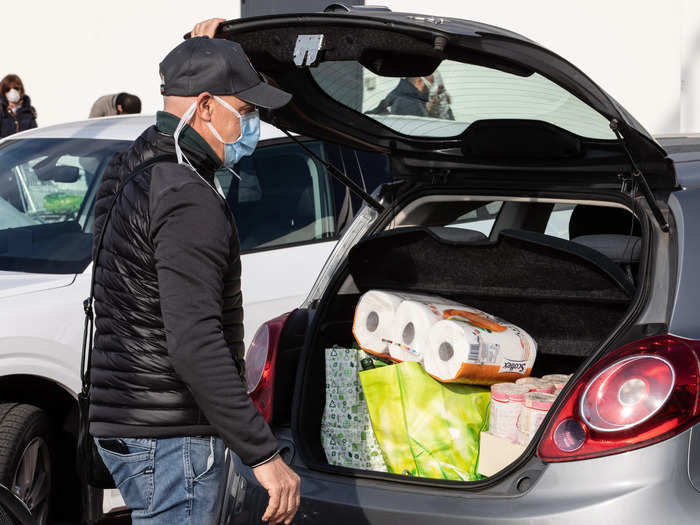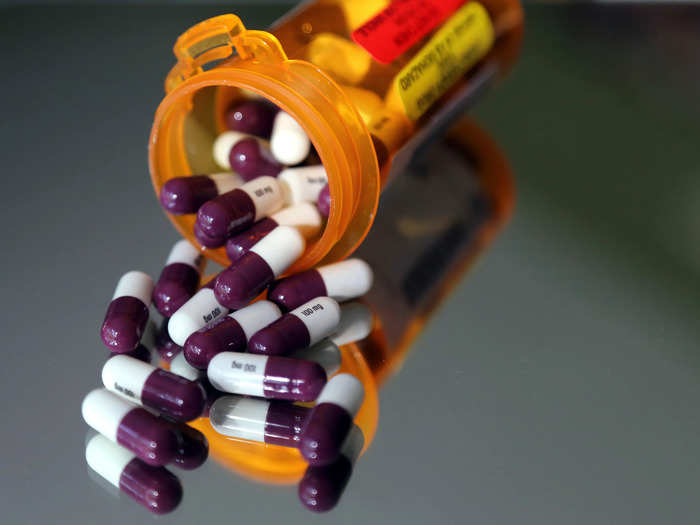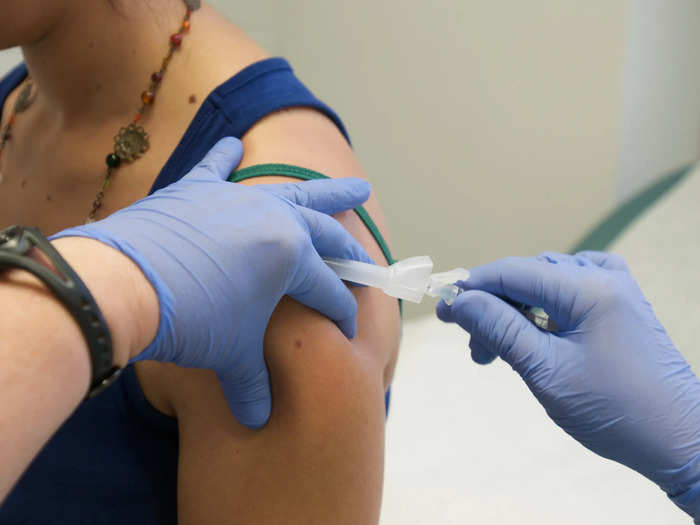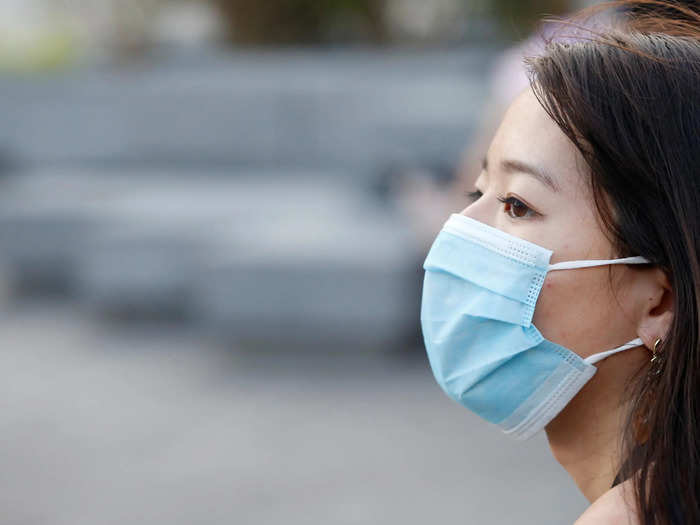- Home
- slideshows
- miscellaneous
- How to prepare for a coronavirus pandemic
How to prepare for a coronavirus pandemic
Keep a two-week supply of food and water.

Stock up on over-the-counter medication, toilet paper, laundry detergent, and pet food.

In his blog post, Mackay advised purchasing a few extra items each time you make a trip to the store.
"Don't buy things you won't eat later, don't hoard, and don't buy more than you'll need for a two-week period," Mackay wrote. "We're not talking zombie apocalypse and we very probably won't see power or water interruptions either."
Order medications ahead of time. You'll want a month's supply.

Marguerite Neill, an infectious-disease expert at Brown University, told the New York Times that people should have at least a 30-day supply of their medications. A 30-day supply of medicine is vital for anyone under quarantine. Passengers quarantined on the Diamond Princess cruise ship in Japan, for instance, reported running low on prescription drugs.
Even in a non-emergency scenario, pharmacists should get about a week's notice to refill a prescription.
Since many pharmaceutical drugs are manufactured in China, the US Food and Drug Administration is monitoring for potential drug shortages. The agency identified the first drug shortage related to the coronavirus on Friday, though it didn't specify the medication.
Drug shortages could become even more pronounced during a pandemic, which could cut off pharmaceutical supply chains in various parts of the world.
Have copies of your medical records handy.

The Department of Homeland Security advises US citizens to prepare copies and electronic versions of their health records.
A recent study from the Chinese Center for Disease Control and Prevention found that the virus most seriously affects older people with preexisting health problems.
Coronavirus patients with heart disease, for instance, had around a 10% mortality rate, while those with diabetes had around a 7% mortality rate.
Wash your hands frequently with soap and water, making sure to scrub for at least 20 seconds.

Coronaviruses can spread between people through respiratory droplets such as saliva and mucus, so good hygiene is critical to prevent transmission.
Soap and water are the best ways to protect yourself from germs, but the next-best option is an alcohol-based hand sanitizer with 60% to 95% alcohol. The CDC also recommends that people refrain from touching their eyes, nose, or mouth as much as possible.
If you develop respiratory symptoms, the CDC advises you to stay home so you don't infect others. Covering your mouth and nose with a tissue when you have to cough or sneeze could also prevent others from getting sick.
Avoid traveling to the following coronavirus hotspots: China, South Korea, Italy, and Iran.

US citizens have been advised to avoid all nonessential travel to China, South Korea, Italy, and Iran. The CDC is asking any citizens returning from five countries — China, South Korea, Italy, Japan, or Iran — who develop a fever, cough, or shortness of breath to seek medical help and self-isolate.
Foreign nationals who've been in China within the prior 14 days are currently not allowed to enter the US.
Continue healthy habits like exercising, drinking lots of water, and getting plenty of sleep.

The Department of Homeland Security recommends being physically active, getting lots of rest, managing stress, drinking fluids, and eating nutritious food as a way to strengthen your immune system.
While there is no cure for COVID-19, a healthy immune system can improve your body's ability to fight off infection.
Get the flu shot if you haven't already. It won't protect you from the coronavirus, but it will reduce the chances that you require medical treatment in hospitals that are treating coronavirus patients.

COVID-19 has never been seen before in humans, so a flu shot won't reduce your risk of getting infected.
It could, however, reduce your risk of getting influenza, which has some of the same symptoms as COVID-19, such as a fever, cough, and sore throat. Since the CDC is already lagging behind on testing coronavirus patients, a reduction in flu patients could reduce further strain on hospitals.
Richard Martinello, an associate professor of infectious disease at the Yale School of Medicine, told Business Insider he has already seen patients with flu symptoms who are unnecessarily concerned that they may be infected with the coronavirus.
"We have to dissuade them that, unless they have a travel history that would be concerning or other contacts with individuals that would be concerning, there's not even a reason to think about testing them," he said.
Stay at least 6 feet away from people who display symptoms such as a dry cough or sneezing.

On Tuesday, Messonier said that US citizens may eventually have to practice "social distancing measures," like working from home or staying away from school.
Eventually, citizens may be asked to avoid public gatherings like concerts or sporting events.
That's already a requirement in some nations outside China: Japan has closed all elementary, junior high, and high schools until early April. Iran has closed all universities for one week and banned public gatherings like weddings, concerts, and sports games through March. Italy has also banned public events in 11 towns.
Don't wear a face mask unless instructed to by a health authority.

The CDC does not recommend face masks for the general public. For healthy people, hand-washing and avoiding close contact with sick patients is a better way to prevent infection.
"Wearing masks, except in the situation of a healthcare provider, has never been shown to be a very effective way to protect yourself from infectious diseases," Eric Toner, a scientist at Johns Hopkins Center for Health Security, told Business Insider.
Stocking up on face masks can also reduce the supply for medical workers that need them.
At a hearing on Wednesday, Health and Human Services Secretary Alex Azar said the US needed 300 million N95 masks — which filter out most airborne particles from the surrounding air — to protect healthcare workers during an outbreak. At present, it only has 30 million, he said.
At least 3,000 healthcare workers have been diagnosed with COVID-19 in China.
Read more:
- Americans are being told to prepare for a coronavirus outbreak — but US health agencies lack funding, and disease testing lags behind
- The coronavirus has pandemic 'potential' as it spreads in South Korea, Italy, and Iran, according to WHO
- The FDA just announced the first drug shortage caused by the coronavirus, but wouldn't identify the drug
Popular Right Now
Popular Keywords
Advertisement